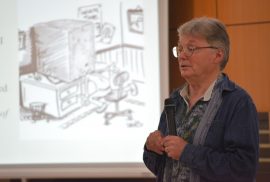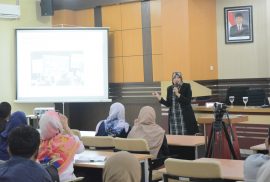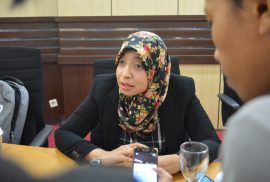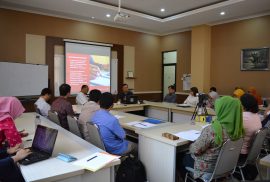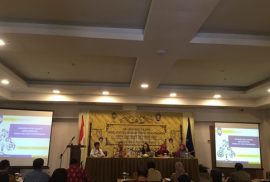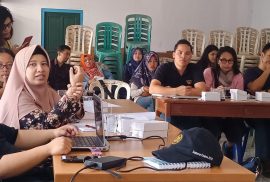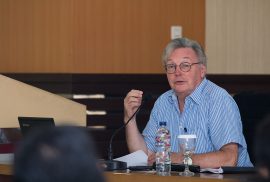Yogyakarta, PSKK UGM – PSKK UGM menggelar seminar bertajuk How to Enjoy the Process of Scientific Writing pada Jumat (15/11/2019) di Auditorium Prof. Dr. Agus Dwiyanto, Gedung Masri Singarimbun, PSKK UGM, Jalan Tevesia, Bulaksumur, Yogyakarta.
Para generasi Z ini berusaha menyampaikan aspirasi politik mereka dengan cara baru, yakni menggunakan poster atau spanduk demo yang dikemas dalam gaya humor.
Yogyakarta, PSKK UGM – Pusat Studi Kependudukan dan Kebijakan (PSKK) UGM mengadakan seminar bulanan bertajuk Melawan dengan Gembira: Humor dalam Komunikasi Politik Kebangsaan pada Senin (21/10/2019). Sebagai narasumber, PSKK mengundang seorang komika, peneliti humor & […].
Pusat Studi Kependudukan dan Kebijakan (PSKK) Universitas Gadjah Mada telah menyelenggarakan seminar internal pada tanggal 17 September 2019 yang berjudul “Decision making and behaviours for sustainable spatial development process” dengan pembicara Datuk Ary A. Samsura yang merupakan pengajar dari Radboud University, Belanda.
Pusat Studi Kependudukan dan Kebijakan Universitas Gadjah Mada (PSKK UGM) bekerja sama dengan Satpol PP Kota Yogyakarta telah melaksanakan Kajian Perilaku Pelanggar Perda dengan menggunakan metode penelitian kualitatif.
Yogyakarta, PSKK UGM – Pusat Studi Kependudukan dan Kebijakan (PSKK) Universitas Gadjah Mada (UGM) dengan bangga menyelenggarakan Konferensi Internasional terkait Kependudukan dan Kebijakan Sosial di tengah Kekacauan Dunia serta rangkaian kegiatan Summer Course bertema Migrasi Tenaga Kerja Internasional dalam […].
WONOSOBO, suaramerdeka.com - Sejumlah mahasiswa asal sejumlah negara mengikuti kursus musim panas (Summer Course) di Desa Lipursari, Kecamatan Leksono, Wonosobo, Senin (13/8). Kegiatan yang digelar Pusat Studi Kependudukan dan Kebijakan Universitas Gadjah Mada Yogjakarta itu dilakukan dengan fokus penelitian tentang tata kelola eks buruh migran atau mantan tenaga kerja Indonesia (TKI).
DETIK - Pengangguran terbuka menjadi problem serius di negara berkembang, termasuk Indonesia. Meskipun tidak populer, namun pemerintah diharapkan melakukan intervensi di pasar tenaga kerja untuk mengatasi pengangguran dan masalah sosial lainnya.
Profesor dari Erasmus University Rotterdam the Netherland, Ben White menjelaskan, banyak pemuda desa enggan kembali bekerja ke desa dengan berbagai macam alasan, salah satunya desa kurang menjanjikan dari sisi ekonomi.

